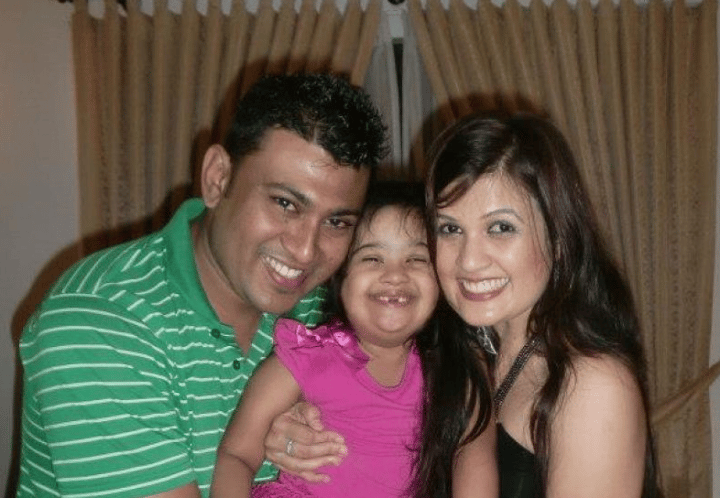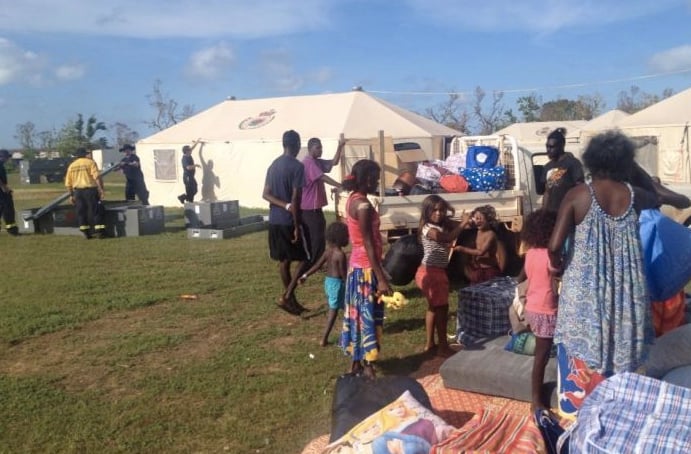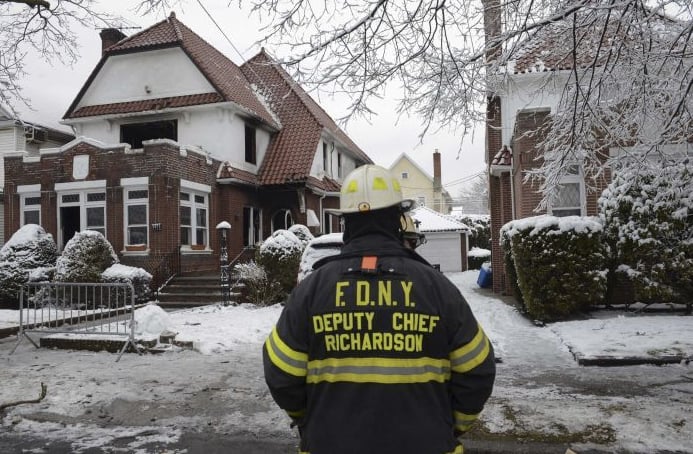
1. Eight year old girl refused visa because she has Down syndrome, says family.
By Cailtin Gribbin for ABC.
A Sri Lankan family who want to work in a Christian crisis centre in remote Australia say their daughter was refused a temporary visa because she has Down syndrome.
The Immigration Department issued a temporary work visa to eight-year-old Eliza Fonseka’s parents, but not to the child, because she was considered to be a “significant cost to the Australian community in the areas of health care”.
Eliza’s father Angelo Fonseka said his daughter was in good health and not on medication, and the family had Australian private health insurance to cover any medical costs.

“We have given in writing that we will take responsibility for Eliza, she doesn’t need any support from the government,” Mr Fonseka said.
“In Sri Lanka we are not relying on any government benefits. As parents we are supplying everything. If we migrated to Australia we will do the same thing.”
The family plans to move to Shark Bay, 800 kilometres north of Perth, to work at a Christian crisis centre that provides food, accommodation and support to people in need.
“We want to help them. My wife is a worship leader, she wants to be [on] the worship team in Shark Bay some day,” Mr Fonseka said.
In a statement, the Department of Immigration said it could not discuss the specific details of the case, but said the visa assessment process was extensive.
A version of this story was originally published on ABC and has been republished with full permission.
2. Cyclone Nathan: Eastern Northern Territory residents bracing for second cyclone in a month.
Communities along the eastern Northern Territory coast are readying for their second major storm event in just over a month, with Cyclone Nathan on course to make landfall early on Sunday.
Residents in the eastern Arnhem Land communities from Milingimbi to Port Roper including Groote Eylandt are under a cyclone ‘warning’ level alert, with gale force winds expected early Sunday, as category one strength Nathan moves west and builds in intensity.

On February 18 Cyclone Lam passed north of the region as a category three system before building to category four intensity and crossing the coast the next day, with wind gusts of about 230kph destroying housing and infrastructure on Elcho Island and causing less severe damage at nearby Milingimbi.
Cyclone Nathan moved into the Gulf of Carpentaria overnight Friday as a category one system with gusts up to 90 kilometres per hour, defying predictions it would weaken back to tropical low strength as it passed over the land mass of Cape York.
Dozens of NSW Rural Fire Service tents were erected on a football field in Galiwinku, Elcho Island, to accommodate those who lost their homes to Cyclone Lam last month.
But now those residents have been relocated again, as members of the fire service deconstruct the so-called ‘tent city’ in preparation for Nathan.
Residents will now have to spend at least two days in a shelter set up at a nearby school.
A version of this story was originally published on ABC and has been republished with full permission.
3. Woman considering an appeal to the High Court so that she can sue her parents for abuse and neglect.
Queensland resident Sue Madsen is considering a landmark High Court appeal so that she can sue her mother and father for neglectful parenting.
After exhausting a number of avenues for legal action, including police child protection squad Taskforce Argos and civil court action, Ms Madsen is seeking leave to appeal to the High Court.
Ms. Madsen alleges that her father subjected her to repeated sexual assault in her childhood home in Brisbane and that he was a violent man who once belted her so viciously that she still bears a scar on her hip.
Both parents strenuously deny the allegations.


Top Comments
1. Private health insurance is not mandatory, its expensive, especially where existing conditions MAY cost the insurer, or they just don't cover associated costs. The work these parents were seeking doesn't sound like its going to pay a whole lot and specialized services in remote locations are also expensive or not available. There is the potential insurance may laps, services will be unavailable or too expensive, this could lead either the government picking up costs, or worse the child misses out on any therapies or treatments she may require. Immigration got it right.
1. There are other issues raised by this story. For instance, how do we feel as a community about Christians running a crisis center in remote Australia? On the one hand, it could be a great thing, providing much needed resources. On the other, there is a danger with any religious group that they might denigrate existing spiritual practices. I also think its naive to suggest that the parents will provide the only care for their child. Under Australian law their child would be entitled to the same treatment as everyone else.
Why was the child considered to be a “significant cost to the Australian community in the areas of health care”. If it was because of her disability then it is discriminatory. And if it is not, then we should be utterly ashamed of our policy. Exactly what part of the child being entitled to the same treatment as everyone are you objecting to?
Hi Guest, I wasn't objecting to it. I was pointing out that as a community we already agree by law to support a child with disabilities.
Of course its discriminatory, that's what immigration departments all over the world are for, its part their jobs to stop unnecessary costs to their countries, can you imagine the cost both financially and to waiting times if we were to let people likely to require care in on temporary work visa's?, there would be people flying in to 'work' and suddenly requiring medical assistance they can't pay for, of course we'd treat them anyway, then they'd go back home leaving our healthcare system out of pocket and Australians bumped down the que.
I thought it was to keep undesirables out. Not to discriminate. Because I thought discrimination against those with a disability was not only against Australian law but internationally as well. So if someone without down syndrome (or any other disability - normal, if you like) who, obviously, not likely to require medical assistance (whatever that means) suddenly does, it's okay for that person who we let in because, well, they weren't likely to require care, right? Because they didn't have a disability, right? Best you stay anonymous with that kind of logic, right?